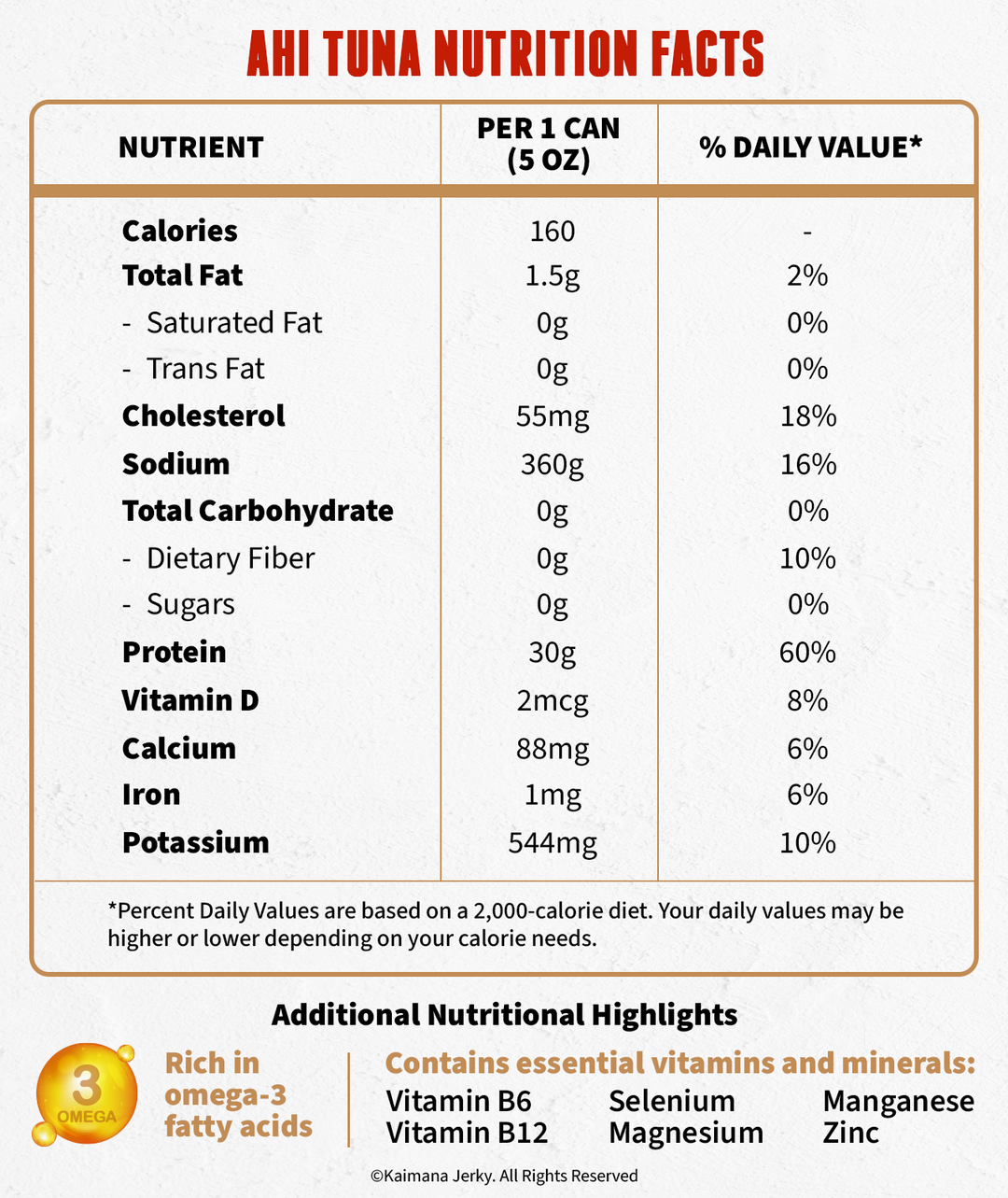Fuel Your Body with Ahi Tuna’s Nutrients
Packed with protein, omega-3s, and essential vitamins, ahi tuna is a delicious way to support your health. Discover the benefits and shop our wild-caught ahi tuna jerky today!

Ahi tuna is a lean fish renowned for its impressive nutritional profile and significant ahi tuna health benefits. Packed with high-quality protein, essential vitamins, minerals, and healthy fats, ahi tuna is a powerhouse of nutrients.
Here's the breakdown for a one-can (5-ounce) serving of canned yellowfin tuna:
Ahi tuna is also a great source of omega-3 fatty acids. It contains vitamins B6 and B12, selenium, manganese, magnesium, and zinc.
These components contribute to the numerous ahi tuna benefits, such as supporting heart health, improving brain function, and boosting overall well-being.
Packed with protein, omega-3s, and essential vitamins, ahi tuna is a delicious way to support your health. Discover the benefits and shop our wild-caught ahi tuna jerky today!
Get all the health benefits of fresh Ahi Tuna in a convenient, protein-packed jerky. No prep, no mess—just pure, delicious nutrition. Grab a bag today!
Compared to other proteins like red meat, ahi tuna is high in protein and low in fat, making it ideal for people watching their weight or seeking a healthy diet. It's also rich in omega-3 fatty acids, vitamins B6, B12, selenium, manganese, magnesium, phosphorus, and zinc, making it beneficial for overall health.
The healthier fish for you depends on your nutritional needs. While salmon provides more vitamin B12, vitamin D, and omega-3 fatty acids than ahi tuna, tuna is richer in protein and lower in calories and fat, making it ideal for people watching their weight.
Yes, ahi tuna is considered anti-inflammatory! It's packed with omega-3 fatty acids, which are known to help reduce inflammation in the body. These healthy fats can play a big role in calming conditions like joint pain, heart issues, or even skin flare-ups. Adding ahi tuna to your meals is a tasty way to support your body’s natural fight against inflammation.
Due to the risk of mercury poisoning, the FDA advises against eating tuna daily. Instead, the FDA recommends that adults eat up to 3 servings (12 ounces) of tuna weekly to get sufficient omega-3 and other essential nutrients.
Ahi tuna is packed with omega-3 fatty acids, which can help reduce the amount of liver fat, making it good for your liver.
When it comes to fish you can eat every day, it's best to stick with low-mercury options like tuna, salmon, sardines, tilapia, or trout. These fish are packed with nutrients like omega-3 fatty acids, protein, and vitamins, making them great for your overall health.
While variety is key to a balanced diet, these options are safe and healthy enough to enjoy regularly without worrying about mercury levels.
You can eat uncooked ahi tuna as long as it's labeled as ''sushi-grade'' and properly frozen to kill parasites. However, cooking tuna is the best way to eliminate parasites and reduce your risk of food poisoning.